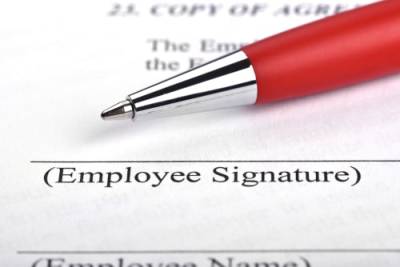Contact Our Firm
The use of the Internet or this form for communication with the firm or any individual member of the firm does not establish an attorney-client relationship. Confidential or time-sensitive information should not be sent through this form.
I have read and understand the Disclaimer and Privacy Policy.

Recent Blog Posts
Cease-and-Desist vs. Orders of Injunction
 When someone infringes on your business rights, steals your intellectual property, or violates a contract, you need to act quickly. Two common legal tools for stopping harmful conduct are cease-and-desist letters and orders of injunction. While both are meant to stop unwanted behavior, they work very differently and serve different purposes.
When someone infringes on your business rights, steals your intellectual property, or violates a contract, you need to act quickly. Two common legal tools for stopping harmful conduct are cease-and-desist letters and orders of injunction. While both are meant to stop unwanted behavior, they work very differently and serve different purposes.
Many intellectual property disputes will be resolved in 2026 without litigation after a well-drafted cease-and-desist letter. However, when immediate action is necessary or when the other party refuses to cooperate, an injunction may be your only option.
Wondering whether you need a cease-and-desist or an order of injunction? Our Fort Lauderdale business law attorney will talk through your case with you and help you decide what to do next.
What You Need to Know When Selling a Business in Florida
 If you are considering selling your business in Florida, there are several important factors to be aware of. You may run into difficulties trying to determine the right price for the sale or vetting potential buyers to make sure your interests are protected. Other unexpected issues can delay the sale and drain your assets, adding unnecessary stress. Seeking legal representation can make the whole process easier and less intimidating.
If you are considering selling your business in Florida, there are several important factors to be aware of. You may run into difficulties trying to determine the right price for the sale or vetting potential buyers to make sure your interests are protected. Other unexpected issues can delay the sale and drain your assets, adding unnecessary stress. Seeking legal representation can make the whole process easier and less intimidating.
At The Elliot Legal Group, P.A., our Broward County, FL business law attorney is qualified to guide you through the sale of your business. Attorney Gavin T. Elliot has represented businesses small and large, from single-member LLCs to Fortune 500 companies.
Five Things to Consider Before Selling Your Business in 2026
The Exit Planning Institute estimates that 80 to 90 percent of a business owner’s net worth is tied to his or her company. As such, a hasty sale should be avoided at all costs. Our firm can take steps to minimize risk and protect your interests when negotiating with a buyer.
5 Common Reasons for Shareholder Disputes
 Shareholder relationships generally start with optimism and enthusiasm, but when expectations are different, even healthy Florida businesses can find themselves facing disputes. From disagreements regarding money to power struggles in decision-making, shareholder disputes can quickly derail operations, destroy trust, and interfere with growth. This means a thriving Florida business can unravel quickly when shareholders no longer see eye to eye.
Shareholder relationships generally start with optimism and enthusiasm, but when expectations are different, even healthy Florida businesses can find themselves facing disputes. From disagreements regarding money to power struggles in decision-making, shareholder disputes can quickly derail operations, destroy trust, and interfere with growth. This means a thriving Florida business can unravel quickly when shareholders no longer see eye to eye.
Shareholder disputes (Chapter 607 Florida Business Corporation Act) are especially common in Florida’s closely held and family-run companies, where personal relationships collide with business decisions. What begins as a minor disagreement can snowball quickly into stalled projects and even litigation.
When you understand the most common shareholder conflicts and why they arise, you can often resolve them before they threaten your business's stability. Having an experienced Broward County, FL business law attorney by your side can help the entire process go much more smoothly and prevent disputes before they arise.
Can a Cease and Desist Address Violations of Non-Compete Agreements?
 A non-compete agreement (Section 542.335, Fla.Stat) is a legal contract between an employer and an employee that restricts the employee from engaging in certain competitive activities after leaving the company. These agreements are commonly used to protect a company's trade secrets, confidential information, and client relationships. However, there are instances in which employees may violate these agreements by working for a competitor or starting a competing business.
A non-compete agreement (Section 542.335, Fla.Stat) is a legal contract between an employer and an employee that restricts the employee from engaging in certain competitive activities after leaving the company. These agreements are commonly used to protect a company's trade secrets, confidential information, and client relationships. However, there are instances in which employees may violate these agreements by working for a competitor or starting a competing business.
In such cases, employers often turn to cease-and-desist letters as a first step to address violations of non-compete agreements. A cease-and-desist letter is a formal written notice sent to the person who has allegedly violated the agreement, demanding that they immediately stop engaging in the prohibited activities. A Broward County business and commercial law attorney with experience addressing these issues can ensure that cease-and-desist letters meet all applicable legal requirements and provide representation in litigation to address ongoing violations by former employees.
Can You Personally Be Liable for Your Business’s Debt?
 Most Florida business owners assume their personal assets are fully protected because they have formed an LLC or corporation as their business model. While LLCs and corporations do offer some protection for the business owner, that protection is not absolute.
Most Florida business owners assume their personal assets are fully protected because they have formed an LLC or corporation as their business model. While LLCs and corporations do offer some protection for the business owner, that protection is not absolute.
Unfortunately, the lines between business and personal finances are often blurred. Owners may engage in questionable transactions or sign personal guarantees for business loans. In these cases, creditors may be able to hold owners, officers, or members personally liable for business debts.
If you have a business in Florida, it is essential that you understand when limited liability ends and personal exposure begins. A highly skilled Broward County, FL business and commercial law attorney can help ensure that your home, savings, and future financial security are safeguarded should your business get into trouble.
Can Employment Contracts Include Non-Disparagement Agreements?
 Employment contracts generally contain specific terms that affect both the employer and the employee. In many cases, an employer will want to include terms that protect his or her interests and prevent employees or former employees from taking actions that could harm the company. These may include non-compete agreements that prevent a person from engaging in unfair competition and non-disclosure agreements that prevent employees from disclosing confidential information.
Employment contracts generally contain specific terms that affect both the employer and the employee. In many cases, an employer will want to include terms that protect his or her interests and prevent employees or former employees from taking actions that could harm the company. These may include non-compete agreements that prevent a person from engaging in unfair competition and non-disclosure agreements that prevent employees from disclosing confidential information.
In some cases, employers may also ask employees to sign non-disparagement agreements, which are intended to protect a company’s reputation. In fact, an increasing number of Florida employers are including non-disparagement clauses in employment contracts, severance agreements, and settlement documents. The goal for employers is to protect their business reputation or limit what former employees can say on social media. In some cases, these non-disparagement clauses can go too far.
What Happens if a Landlord Does Not Return a Security Deposit?
 More than any other part of a Florida lease, security deposits typically cause the most conflict. A tenant may move out and never hear back about his or her security deposit, or a landlord may claim damages months later and refuse to return the security deposit. Yet Florida law is clear. There are strict deadlines and written notices that govern the process and timing of returning security deposits.
More than any other part of a Florida lease, security deposits typically cause the most conflict. A tenant may move out and never hear back about his or her security deposit, or a landlord may claim damages months later and refuse to return the security deposit. Yet Florida law is clear. There are strict deadlines and written notices that govern the process and timing of returning security deposits.
Under Florida Statute Section 83.49, both sides have specific rights, duties, and penalties for non-compliance. This statute applies to residential rather than commercial rentals, and covers how deposits must be held, accounted for, and returned. Whether you are a landlord attempting to stay compliant or a renter fighting for your security deposit to be refunded, understanding how the law actually works can prevent a costly mistake. Having a Fort Lauderdale, FL real estate lawyer help you navigate this difficult situation can work to improve the outcome.
6 Forms of Fraud That May Affect a Business
 When a person or organization makes false statements or representations to obtain money or other benefits, this is known as fraud. While fraud is a criminal offense that can result in prosecution, it also poses a significant threat to businesses, as it can impact their finances, operations, and reputations.
When a person or organization makes false statements or representations to obtain money or other benefits, this is known as fraud. While fraud is a criminal offense that can result in prosecution, it also poses a significant threat to businesses, as it can impact their finances, operations, and reputations.
By understanding the different forms of fraud that could potentially lead to financial losses or other consequences, business owners can take steps to identify and prevent these threats. An experienced attorney can help a business address the legal issues associated with fraud and ensure that a business owner can protect their interests.
The Different Types of Business Fraud
There are many different fraudulent activities that businesses may need to address, including:
Equity vs. Debt Financing for Florida Venture Capitalists
 Raising capital could well be one of the most crucial steps for Florida venture capitalists. Florida is a thriving hub for startups, particularly in the fields of hospitality, healthcare, real estate, and technology. This fact attracts investors to the state, eager to capitalize on early-stage opportunities. Before a commercial business deal closes, it is essential to address a significant question: Is equity financing or debt financing the most suitable path forward?
Raising capital could well be one of the most crucial steps for Florida venture capitalists. Florida is a thriving hub for startups, particularly in the fields of hospitality, healthcare, real estate, and technology. This fact attracts investors to the state, eager to capitalize on early-stage opportunities. Before a commercial business deal closes, it is essential to address a significant question: Is equity financing or debt financing the most suitable path forward?
Each option carries its own set of legal implications, risks, and benefits. The choice between equity financing and debt financing can significantly impact a company’s legal and financial future, as well as its growth. If you are currently debating between debt and equity financing as a Florida venture capitalist, having a strong Oakland Park, FL business and commercial law attorney can make a major difference in the outcome of your venture.
Factors to Be Aware of If You Are Considering a Short Sale Purchase in Florida
 On the face of it, a short sale may seem like a great opportunity for a buyer. In the majority of these transactions, the seller is seeking to sell quickly – because of potential foreclosure or other debt-related issues – so the asking sale price is often much lower than it would be under a normal real estate transaction.
On the face of it, a short sale may seem like a great opportunity for a buyer. In the majority of these transactions, the seller is seeking to sell quickly – because of potential foreclosure or other debt-related issues – so the asking sale price is often much lower than it would be under a normal real estate transaction.
However, short sales can present a range of challenges and complexities for both buyers and sellers. These challenges may be financial or legal, but it is essential to fully understand all the potential problems before making an offer on a short-sale property.
You may face lender approval delays or property condition issues, but one thing is for sure: short sales are rarely as simple or as "short" as the name suggests. Some of the more common challenges are detailed below. If you are considering purchasing a home through a short sale, it is important to consult with a Fort Lauderdale, FL real estate attorney first in order to avoid these issues.















